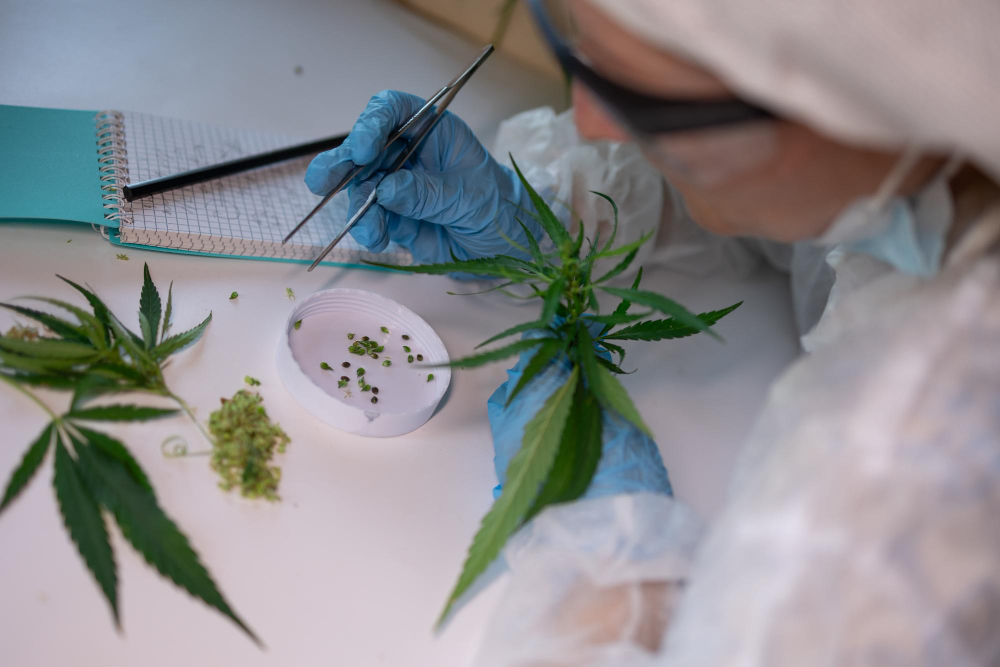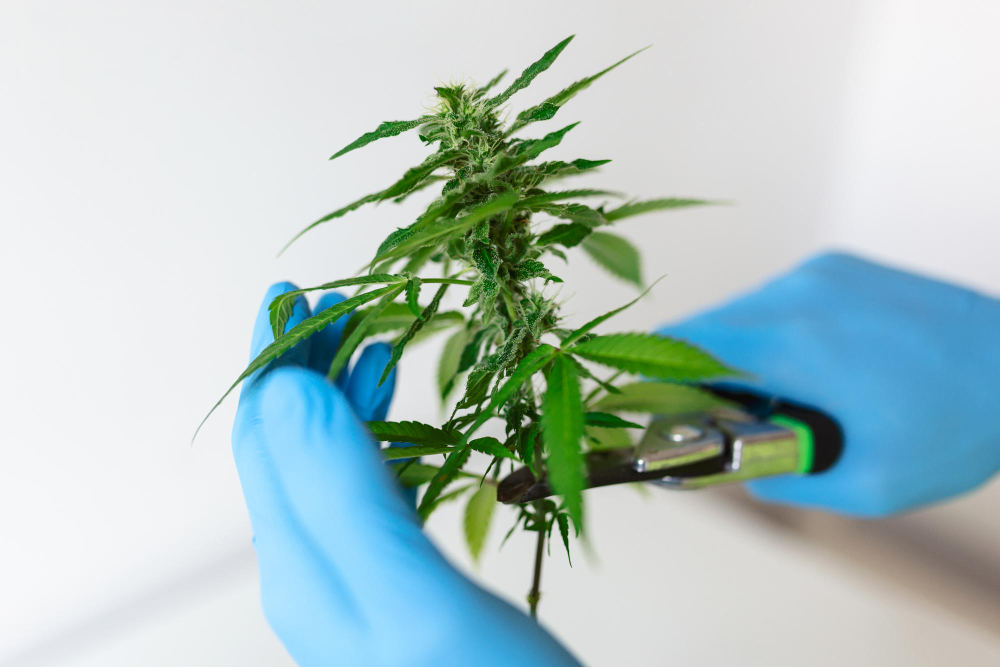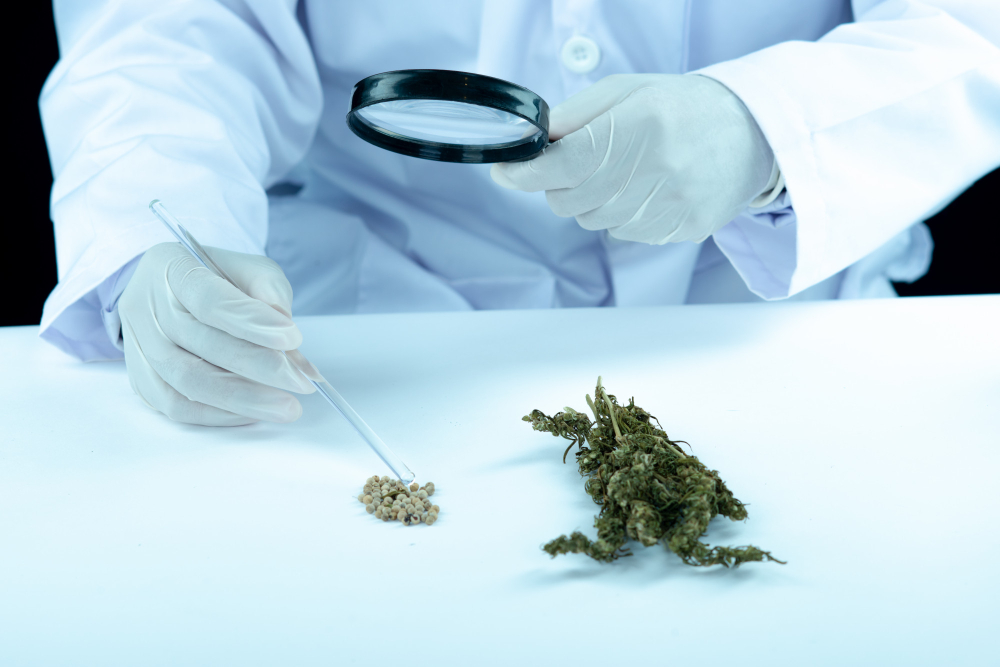The endocannabinoid system (ECS) plays a crucial role in maintaining balance across various physiological functions, from pain regulation to immune response. Understanding how it interacts with cannabinoids like CBD and THC, derived mainly from the Cannabis sativa L. plant (phytocannabinoids), is essential for advancing the efficacy of modern medicinal applications. As scientific research continues to uncover the therapeutic potential of this system, industries and companies focused on high-yield cannabis cultivation optimization and consultancy, like Agropharm, are positioned to lead with precision and innovation. This article explores how the endocannabinoid system works and why it’s fundamental in developing effective, consistent medicinal products derived from natural compounds.
Understanding the endocannabinoid system
The endocannabinoid system is a complex cell-signaling network present in all vertebrates. Discovered in the 1990s, this system regulates critical bodily functions such as mood, appetite, memory, sleep, immune response, and pain sensation. It comprises three key components: endocannabinoids, receptors (CB1 and CB2), and enzymes that break them down.
Endocannabinoids are naturally produced by the body and act as messengers that help maintain internal stability or homeostasis. When there’s an imbalance, such as inflammation or stress, endocannabinoids bind to receptors to help restore equilibrium.
CB1 receptors are primarily located in the brain and central nervous system, while CB2 receptors are found mostly in peripheral organs and immune cells. This distribution explains how the endocannabinoid system influences such a wide range of processes, from neurological to immune regulation.
What makes this system especially relevant today is its interaction with external compounds like cannabidiol (CBD), tetrahydrocannabinol (THC), cannabigerol (CBG) or cannabinol (CBN), between others. These phytocannabinoids mimic the behavior of our own endocannabinoids, binding to the same receptors and producing therapeutic effects.
Scientific exploration into this biological system has not only advanced our understanding of human health but also spurred innovation in cultivation and production strategies. For companies like Agropharm, which specialize in optimizing high-yield crops for therapeutic use, mastering the knowledge about the endocannabinoid system is the cornerstone of consistent and effective medicinal product development.
Interaction between cannabinoids and the human body
The endocannabinoid system functions like a finely tuned network of receptors and signaling molecules. When phytocannabinoids, compounds derived from plants, enter the body, they interact with this system in distinctive ways. Two of the most studied cannabinoids are cannabidiol (CBD) and tetrahydrocannabinol (THC), each affecting the endocannabinoid system differently.
THC is known for binding primarily to CB1 receptors, which are abundant in the brain and nervous system. This interaction influences neurological activity, helping modulate pain, appetite, and mood. Its psychoactive effects are also attributed to this strong binding with CB1.
CBD, by contrast, does not bind directly to CB1 or CB2 receptors but rather influences them indirectly. It modulates receptor activity and inhibits the enzymes that break down endocannabinoids, allowing the body’s natural compounds to remain active longer. This subtle influence is one reason CBD is associated with anti-inflammatory, anxiolytic, and neuroprotective effects without producing psychoactive sensations.
Together, CBD and THC can work synergistically, along with other cannabinoids, a phenomenon known as the “entourage effect.” This synergy can enhance the therapeutic efficacy of a formulation when carefully balanced.
Understanding the interaction between the endocannabinoid system and CBD, as well as the endocannabinoid system and THC, is vital for developing targeted medicinal products. For Agropharm, this insight guides how specific cannabinoids shall be cultivated, extracted, and applied, ensuring consistency and efficacy in every batch.

Medicinal applications of CBD and THC
The therapeutic promise of CBD and THC lies in their ability to interact with the endocannabinoid system and influence essential physiological functions. Today, these compounds are at the forefront of a new wave of medicinal solutions addressing conditions that conventional treatments sometimes fail to manage effectively.
CBD has gained recognition for its neuroprotective and anti-inflammatory properties. It is commonly used in managing epilepsy, anxiety, chronic pain, and sleep disorders. In 2018, the U.S. FDA approved a CBD-based medication for rare forms of epilepsy, a decision grounded in rigorous clinical trials that highlighted the compound’s safety and efficacy.
THC, while known for its psychoactive effects, offers significant medical benefits as well. It has shown effectiveness in managing pain, muscle spasms, nausea (particularly in chemotherapy patients), and appetite loss. Its ability to bind directly with CB1 receptors makes it a powerful ally in treating neurological and inflammatory conditions.
When CBD and THC are used together, their combined effect, often referred to as the entourage effect, can lead to enhanced therapeutic outcomes. For instance, CBD can moderate the psychoactive intensity of THC while preserving its therapeutic benefits, offering a balanced and more tolerable experience for patients.
The endocannabinoid system and CBD, along with the endocannabinoid system and THC, form the biological foundation for these treatments. Agropharm’s approach ensures that the cultivation of active compounds is tightly controlled to meet pharmaceutical standards, delivering consistent and effective raw materials as a base for pharmaceutical formulations. As research continues to grow, so does the confidence in using these cannabinoids as part of evidence-based, natural medicine strategies.
Scientific research supporting medicinal use
A growing body of scientific evidence supports the role of the endocannabinoid system in therapeutic medicine. Researchers have identified this system as a crucial regulator of numerous physiological processes, making it a compelling target for treatments involving cannabinoids like CBD and THC.
Clinical studies have shown that CBD can significantly reduce seizure frequency in patients with treatment-resistant epilepsy. Research published in The New England Journal of Medicine demonstrated the compound’s efficacy in managing Dravet syndrome, a severe childhood epilepsy disorder. Inflammation, another area of focus, has also been studied extensively. CBD’s interaction with the endocannabinoid system has been shown to reduce inflammatory cytokines and enhance immune regulation.
On the other hand, THC’s effects on chronic pain and spasticity have been validated in multiple studies. A review in The Journal of Pain found that cannabinoids were associated with a significant reduction in chronic neuropathic pain. THC’s activation of CB1 receptors in the brain plays a pivotal role in modulating pain perception and mood, making it a valuable component in pain management protocols.
Moreover, ongoing research is exploring the potential of cannabinoids in managing conditions such as multiple sclerosis, anxiety disorders, and even certain forms of cancer, between others. These studies underscore how the endocannabinoid system, when supported by CBD and THC, can be harnessed to create new, effective therapeutic options.
Agropharm closely monitors these scientific advances to enhance its cultivation and project development practices, ensuring that all products align with the latest standards in medicinal cannabinoid applications.
The role of cultivation expertise in product quality
The effectiveness of medicinal cannabinoid products begins long before they reach the lab or the clinic, it starts in the cultivation environment. High-yield crops intended for therapeutic use must meet stringent quality standards to ensure the consistency of active compounds like CBD and THC. This is where specialized cultivation becomes critical.
Agropharm’s decades of experience in technical horticulture and high-yield agricultural systems positions it at the forefront of this precision-focused approach. By optimizing both genetics and environmental variables such as light, temperature, humidity, and nutrient flow, Agropharm ensures that plants develop optimal cannabinoid profiles, crucial for therapeutic efficacy.
Energy-efficient production systems, designed with sustainability in mind, further reduce the operational footprint while maintaining consistent output. Each cultivation cycle is fine-tuned to guarantee that the resulting extracts, rich in CBD, THC and other phytocannabinoids, align with medicinal formulations’ strict quality requirements, such as Good Manufacturing Practices (GMP) compliance.
Moreover, controlled environments help eliminate variability between batches, a common issue in less technically advanced operations. This consistency is vital when working with the endocannabinoid system, where dosage accuracy and chemical profile uniformity can directly impact clinical outcomes. At Agropharm, cultivation is not just agriculture, it is a scientific process built around efficacy, precision, and patient-focused results.
Regulatory and market trends in medicinal cannabinoids
The growing understanding of the endocannabinoid system is reshaping global policies on medicinal cannabinoids. Countries increasingly support regulated use, demanding products that meet high standards of safety, consistency, and efficacy. This has positioned companies like Agropharm, experts in consultancy, design and building precision cultivation operations, to lead the market.
As clinical validation grows, so does demand for formulations based on the endocannabinoid system and CBD, the endocannabinoid system and THC, as well as the endocannabinoid system and other phytocannabinoids. Regulatory bodies now prioritize traceability and reproducibility, driving the need for advanced agricultural solutions. In this climate, scientific accuracy and optimized production are critical to sustained success and credibility.

Agropharm’s contribution to advanced cultivation solutions
With over 10 years of expertise in high-yield crop consultancy and technical optimization, Agropharm develops desing, building and consultancy for cannabis operations that ensure cannabinoid consistency, energy efficiency, and pharmaceutical-grade quality. Our projects in Spain and Portugal combine agronomic science with advanced technology to maximize the therapeutic potential of cannabinoids. By aligning every stage of cultivation with the biological intricacies of the endocannabinoid system, we help shape the future of natural medicine.
If you’re seeking a strategic partner to develop or optimize your cultivation project with medical-grade quality, contact us today and discover how our expertise can elevate your results.
